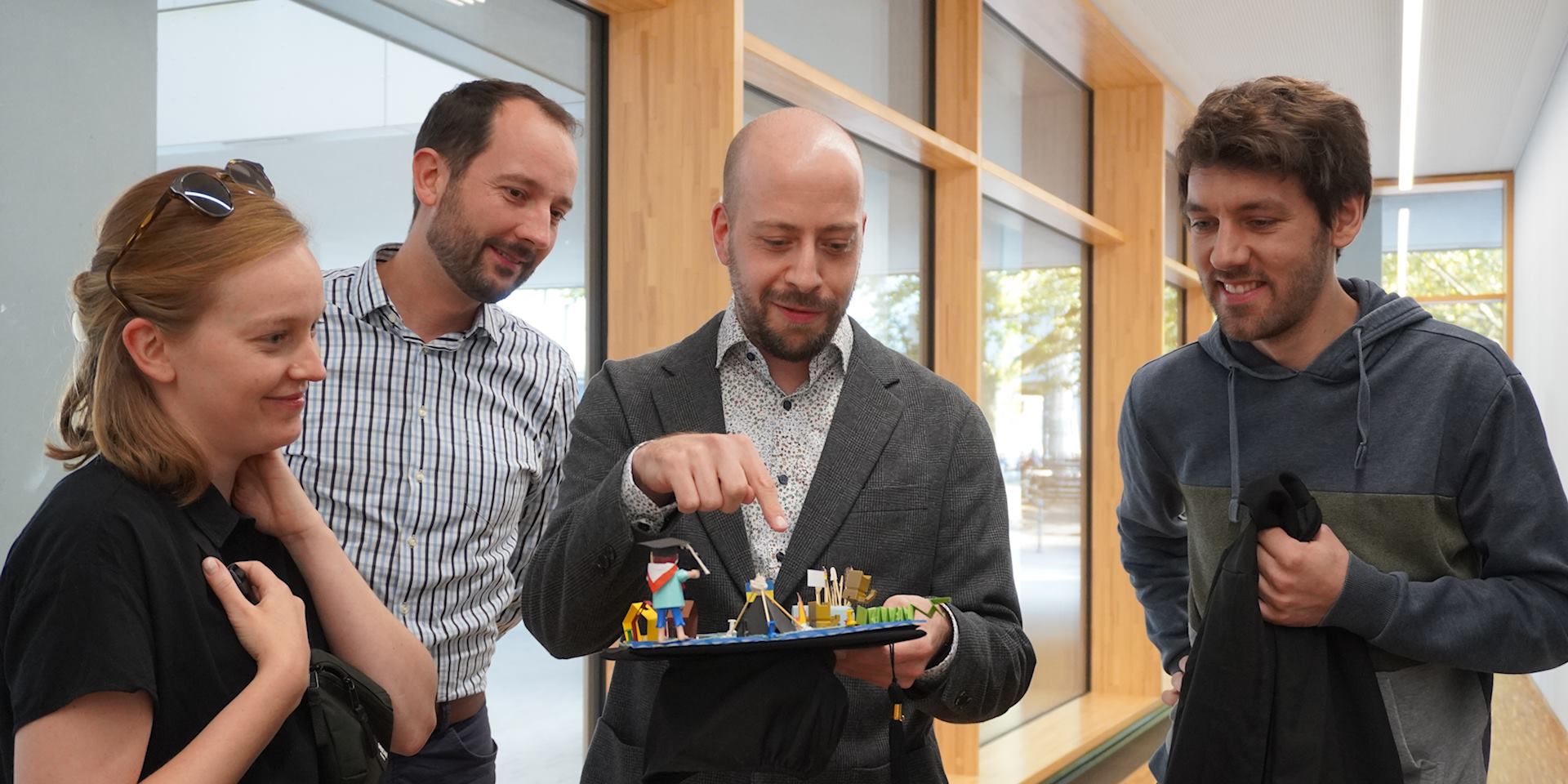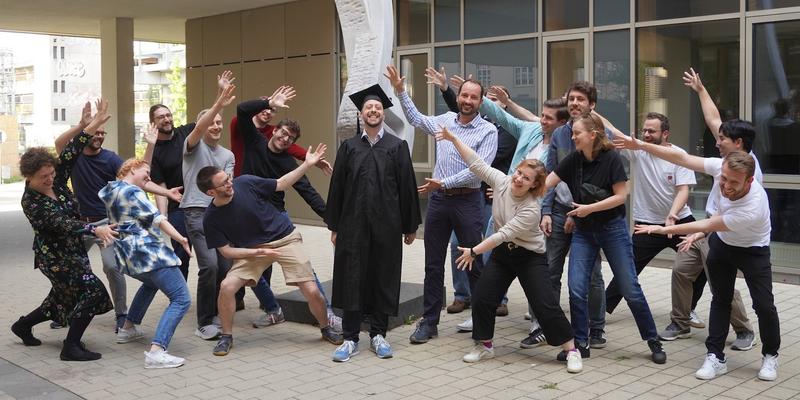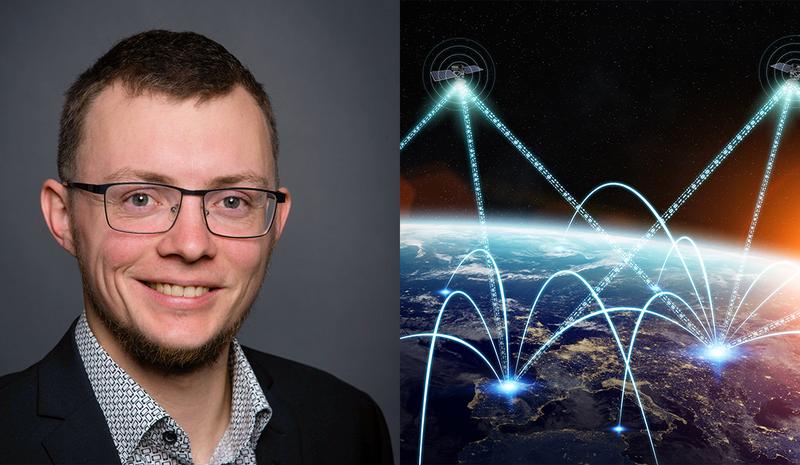How do people help themselves in disasters? Which technologies can support them? Computer scientist Steffen Haesler adresses these questions in his dissertation. Under the title “Citizens in Crises: Behavior, Dependencies, and Technological Support of Digital Self-Organization”, the scientist successfully defended his doctoral thesis at the Department of Computer Science at TU Darmstadt within the Chair of Science and Technology for Peace and Security (PEASEC) on Wednesday, 18 September.
His work is closely linked to emergenCITY and focuses on citizens and their digital needs for self-organization in crisis situations. In doing so, it makes an important contribution to creating a resilient digital environment for people who want to use digital tools for collaboration in times of crisis - but also in everyday life.
Smart home warning systems and resilient neighborhood app
In his research, he investigated how people spontaneously volunteer in crises and which technologies they use to do so. He developed prototypes for smart home warning systems and the concept of a resilient neighborhood app based on decentralized communication technologies such as Disruption-Tolerant Networking (DTN) to reduce dependence on remote servers. The resilient neighborhood app was developed as part of the emergenCITY ReSON mission, in which the computer scientist played a key role as one of the mission leaders.
“emergenCITY has not only given me a home scientifically through the ReSON mission,” says Steffen Haesler,” the collegial and friendly exchange with many great colleagues from different disciplines was always enriching and provided new insights or encouraged me to rethink existing approaches.”

Science allows a detailed view
Steffen Haesler started his studies late, having previously trained in logistics and worked in IT consulting for several years. For him, the dissertation was something he never thought he would be able to do so. On the other hand, it was something that, in addition to the expected stress, filled him with a lot of joy.
“Science allows you to investigate topics in detail, which is often not possible in business,” Steffen Haesler says.
The doctoral thesis was supervised by Professor Christian Reuter from the Department of Computer Science, Chair of Science and Technology for Peace and Security (PEASEC) and Professor Carman Neustaedter from Simon Fraser University in Canada. Professor Matthias Hollick, head of the Secure Mobile Networking Lab, and Professor Jan Gugenheimer, head of the Human-Computer Interaction department, joined the examination committee. Steffen Haesler will continue his research at PEASEC and emergenCITY until the end of the year.
Further information on the dissertation and on Steffen Haesler



